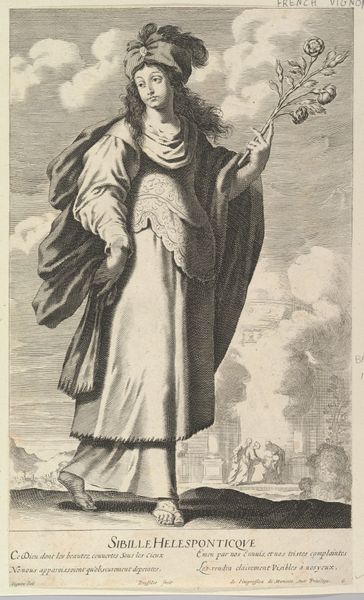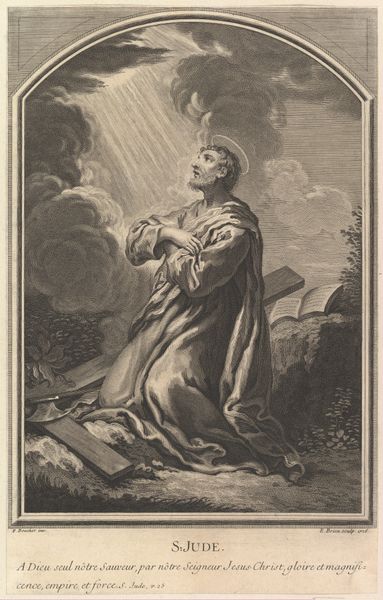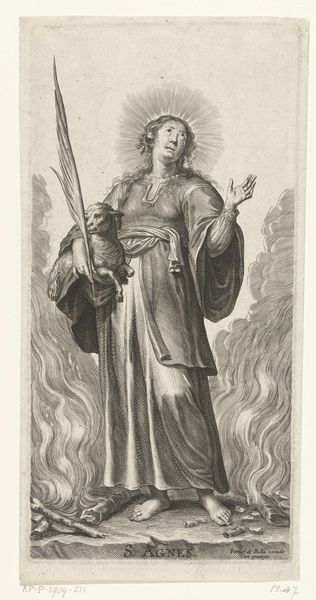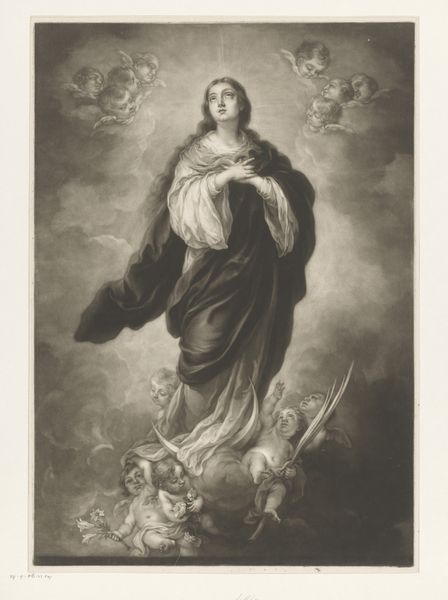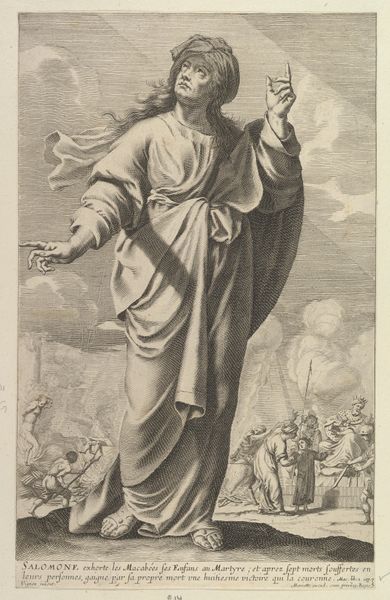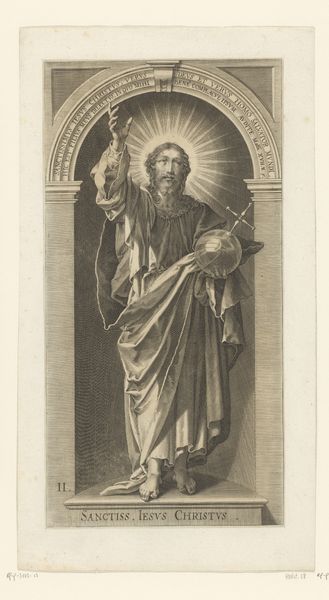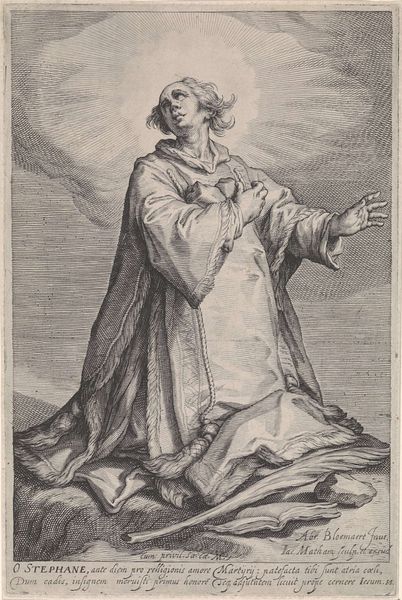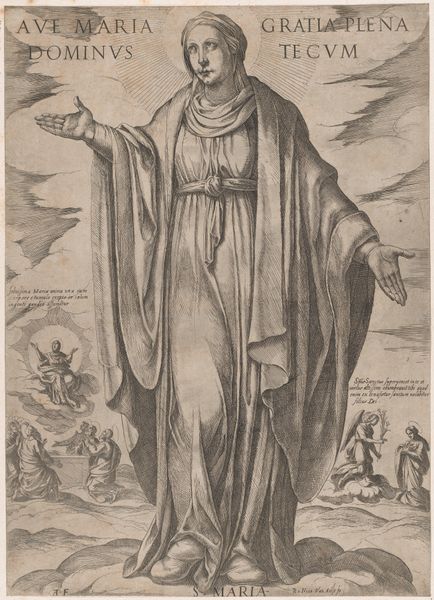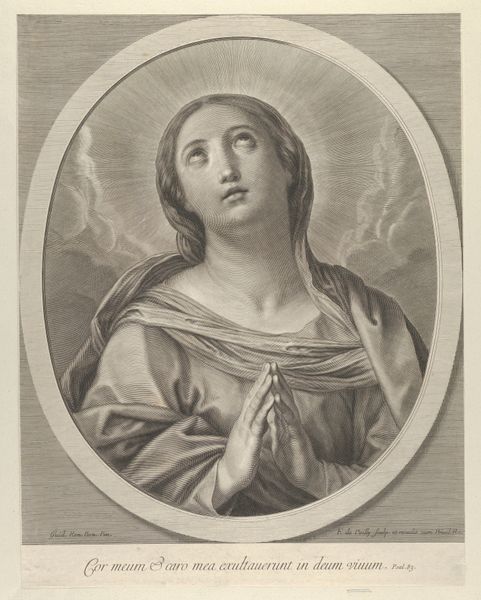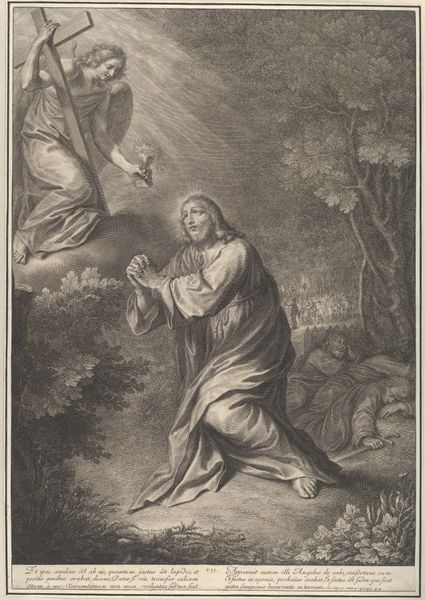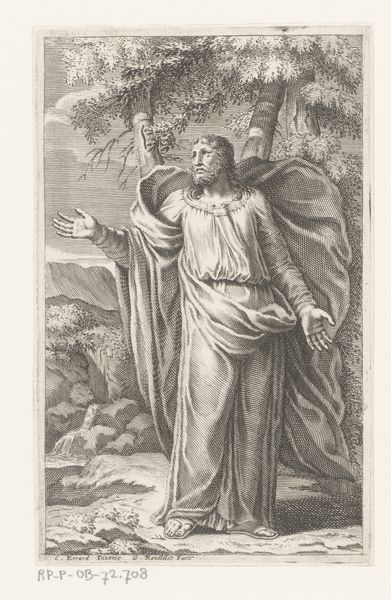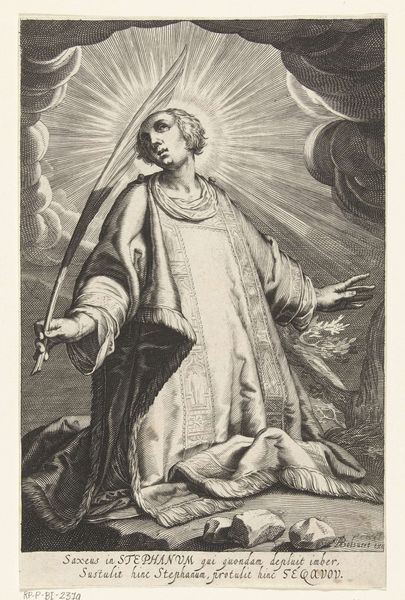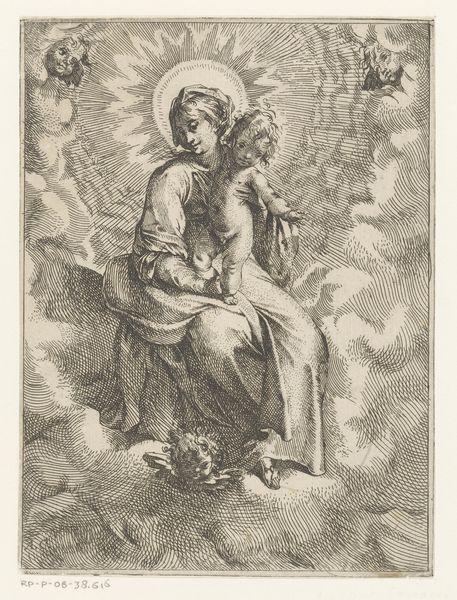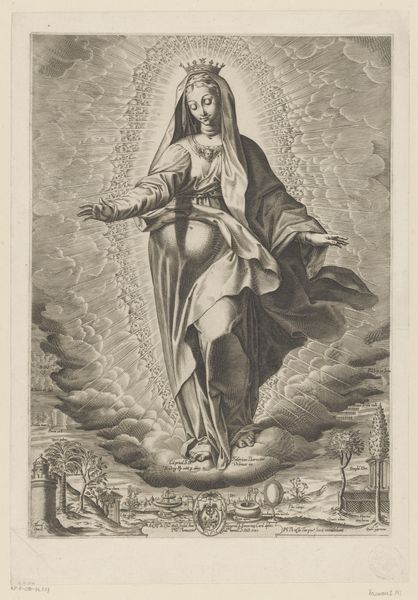
print, engraving
#
baroque
# print
#
figuration
#
history-painting
#
engraving
Dimensions: height 135 mm, width 85 mm
Copyright: Rijks Museum: Open Domain
This engraving of Heilige Apollonius was made by Frederick Bloemaert in the 17th century. The printmaking process is worth considering here. It begins with a metal plate, most likely copper, into which the design is carefully incised. Look closely, and you’ll see that the image is built from thousands of tiny etched lines. To achieve this level of detail takes a high degree of skill and focused labor. After the design is complete, the plate is inked, and then wiped clean. The ink remains only in the etched lines, ready to be transferred to a sheet of paper under high pressure using a printing press. Prints like this one played a crucial role in disseminating images and ideas across Europe. They were relatively inexpensive to produce and could be widely distributed, making art accessible to a broader audience. So, while this may seem like a modest object, it’s actually a testament to the power of reproducible media in shaping cultural values. It also demonstrates the inherent skill and social impact of craft.
Comments
No comments
Be the first to comment and join the conversation on the ultimate creative platform.
